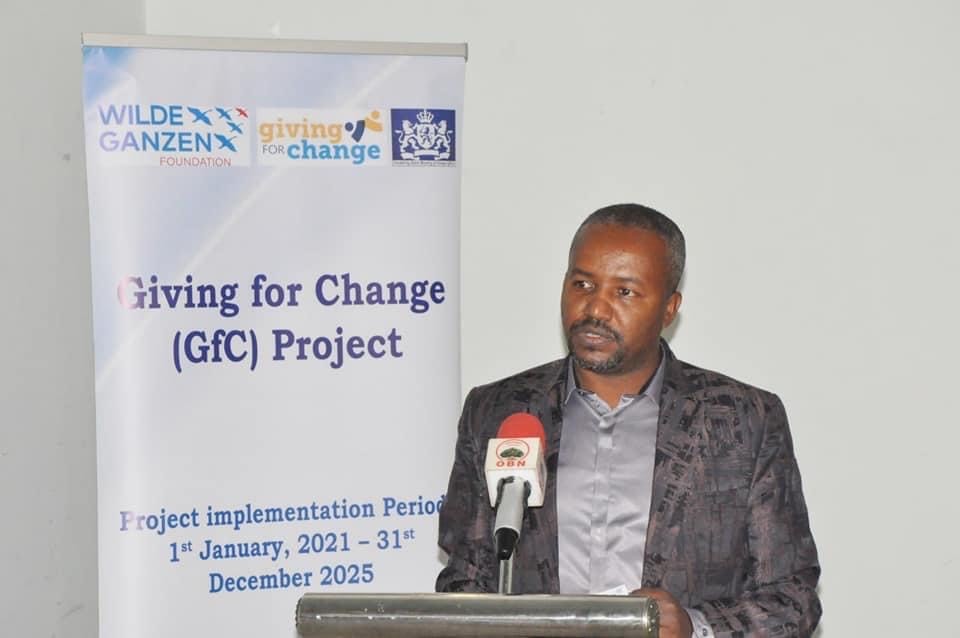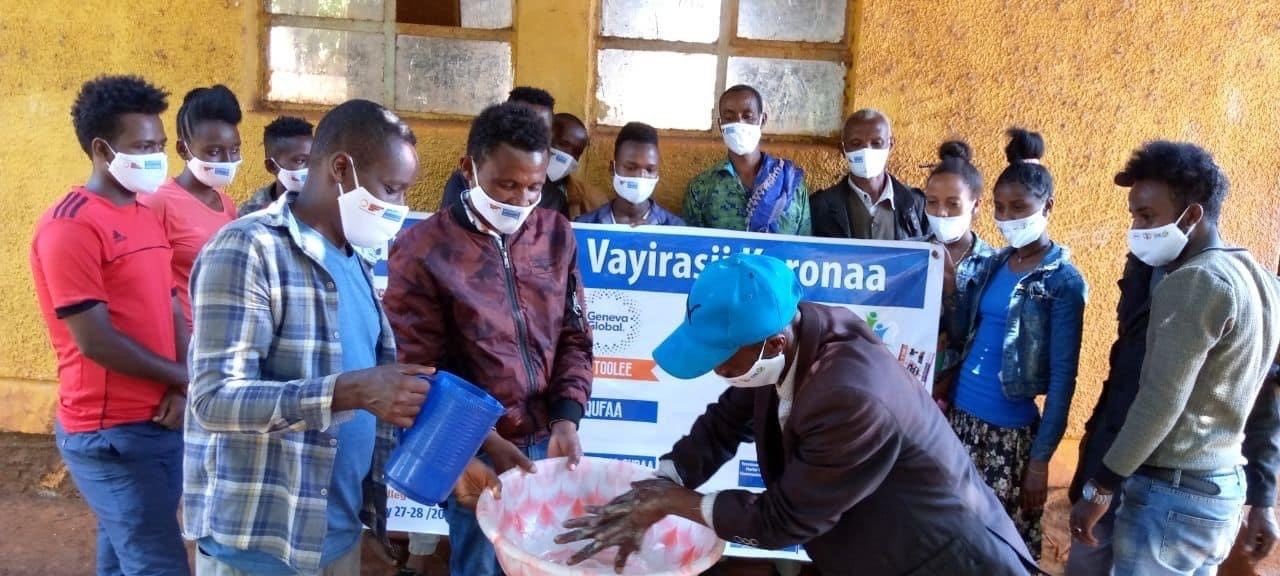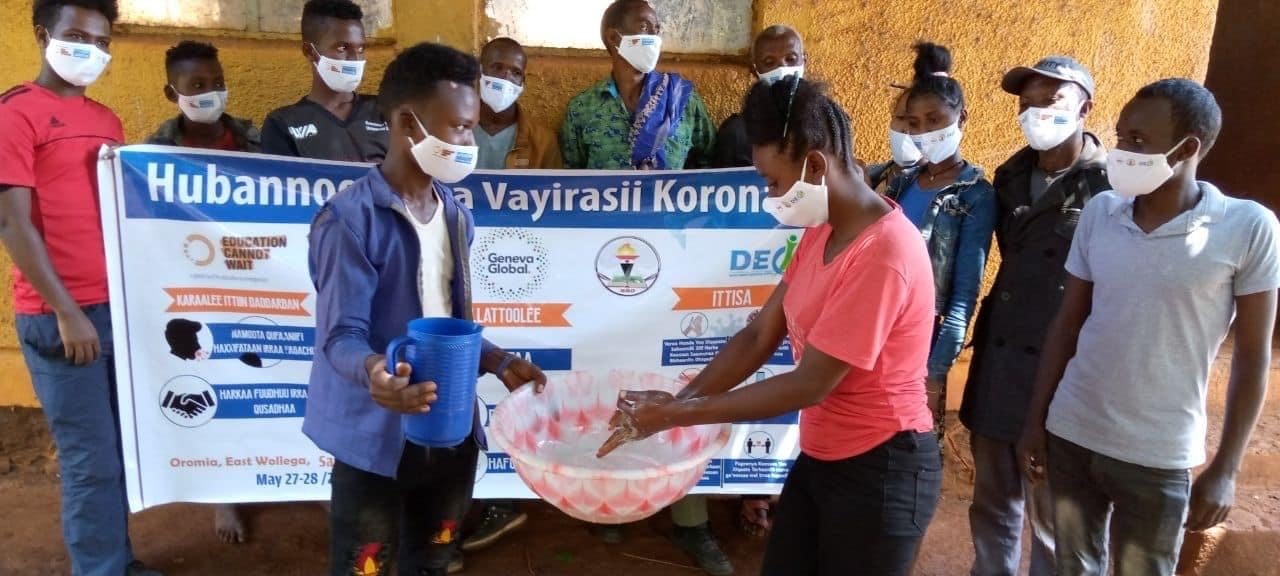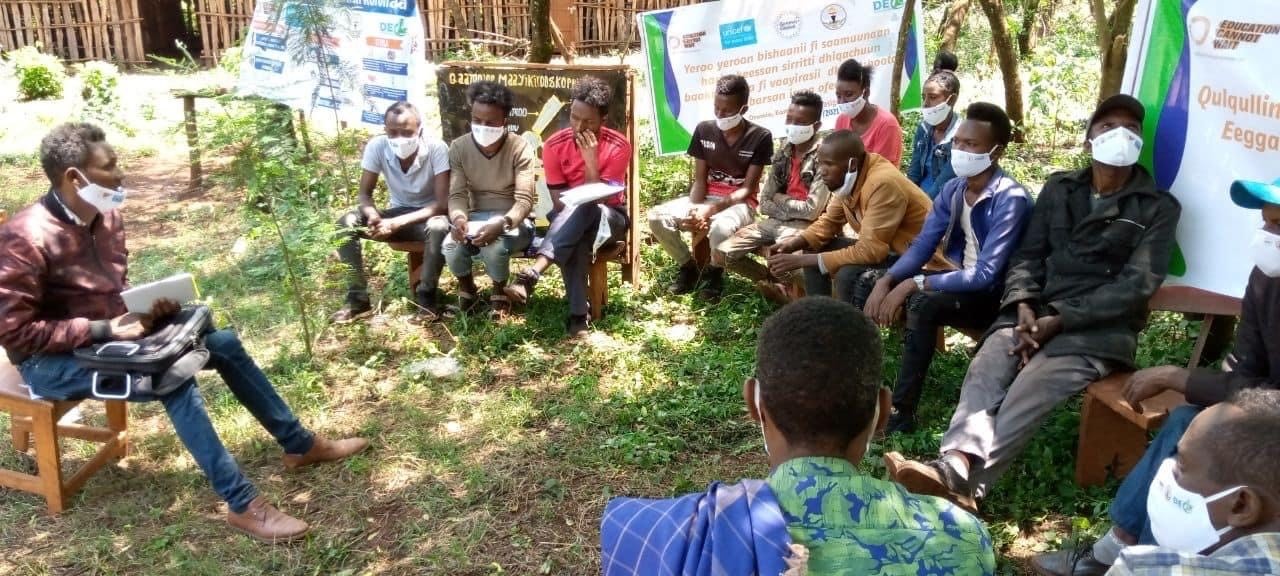“#ShiftThePower means looking beyond donors” – Meet the Giving for Change alliance: Development Expertise Center, Ethiopia
22 Jun 2021
In this series of interviews, we will be introducing you to the lead partners involved in the Giving for Change programme! The five-year, €24 million programme will be implemented in Brazil, Burkina Faso, Ethiopia, Ghana, Kenya, Mozambique, Palestine and Uganda, and is led by a consortium of four organizations: the Africa Philanthropy Network, Kenya Community Development Foundation, GFCF and Wilde Ganzen. The aim of Giving for Change – part of the Dutch government’s ‘Power of Voices’ programme – is to foster local giving as an expression of voice, civic participation, solidarity and dissent. The programme will build evidence around new thinking, approaches and leadership that support community philanthropy development.
In this interview we speak with Berhanu Demissie, Executive Director of the Development Expertise Centre (DEC), a child-centred organization in Ethiopia which works in partnership with grassroots communities, government structures, community-based organizations and donors on civil society strengthening, child rights, gender and Sexual and Reproductive Health and Rights (SRHR) and skills development.
GFCF: What does community philanthropy currently look like in Ethiopia?

Berhanu Demissie, Executive Director of the Development Expertise Centre (DEC), speaking at the Giving for Change launch in Ethiopia
Berhanu: Ethiopian philanthropy, like in many other African countries, is mainly characterized by horizontal giving. We see it mostly in terms of engaging communities particularly for in-kind provision. In addition, communities are contributing cash in development programmes like road infrastructure construction at a village level. There is a practice of 60/40 contribution, where 40% of the budget to construct a road with cable stone within a village is contributed by the community that uses the roads regularly. Another example is the effort of Ethiopians to build the Great Ethiopian Renaissance Dam, the largest dam in Africa being built along the Nile River. This project is mainly financed by individuals’ contributions. Community members make regular monetary contributions and provide labour at the time of need – this could be in response to displacements caused by regional conflicts or natural disasters. In other instances, people pool their funds regularly to rotate loans among themselves. The sort of giving we see is not organized, neither is it formal. We do not have a legal background that encourages philanthropy. When you talk about philanthropy, most people do not understand the term, its only when you offer practical examples that people associate certain cultural practices with the word.
GFCF: What does #ShiftThePower mean to you / your organization?
Berhanu: When we say #ShiftThePower in the development sector, we are looking at Africa having always been on the receiving end of aid which has trapped many nations in a cycle of dependency and poverty. Charity in times of calamities and humanitarian crisis comes naturally. But when external support is expected to be delivered in everyday life for an indefinite period of time, this breeds complacency and apathy in seeking alternative sources of mobilizing development resources. Thus #ShiftThePower means looking beyond donors and exploring alternative sources of development funding. It is also about allowing leadership and decision making to balance, without placing too much emphasis on who has the money.
GFCF: How will the Giving for Change programme help to advance the community philanthropy field or #ShiftThePower in Ethiopia?
Berhanu: Our ambition in this project is for us to have more organized philanthropy, where communities contribute towards sustainable development. Among the myriad of things that can be considered, the ultimate solution to break the dependency syndrome lies in a change of mind-sets. If people have true ambitions in life, they will not be satisfied by being dependants of aids. The reason why many people are not as energetic as they should be is not because they are getting enough from donors, but because they have very limited ambitions in life. It might not be easy to make these attitudinal changes but it is not impossible. We also want to lobby for government to put laws in place that enable us to exercise philanthropy in a sustainable way.
GFCF: How can the Giving for Change programme help encourage donors / INGOs to really shift power and resources closer to the ground?
Berhanu: As a result of the programme, we will engage donors so that they have an understanding of community philanthropy as a sustainable model for development. We will reach out and engage them in national level events and activities under the programme. We have already started advocating for community philanthropy in all of the available platforms including meetings with donors, workshops and other project sensitization activities.
GFCF: How has aid undermined local giving practices in Ethiopia and what can the Giving for Change programme do about that?
Berhanu: The giving of big donations to local communities has crippled local practices as communities are always expecting to receive. However, the programme will be focusing on unlocking local resources so that communities contribute towards their own development. The programme will also focus on changing mind-sets of the general public and religious institutions on the power of giving: from charitable giving to giving for change.
Interview conducted by: Tarisai Jangara, GFCF Communications Specialist
Meet the other Giving for Change partners:
Association Burkinabè de Fundraising (Burkina Faso)
Brazil Philanthropy Network for Social Justice
Coordenadoria Ecumênica de Serviço – CESE (Brazil)
Global Fund for Community Foundations (South Africa)
Kenya Community Development Foundation
MICAIA Foundation (Mozambique)




